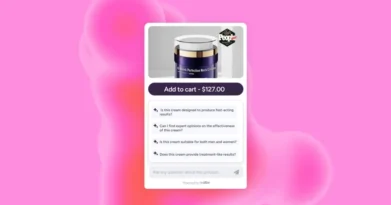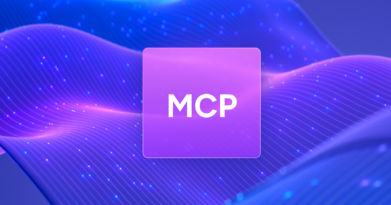Top Chatbot Apps for Shopify in 2025
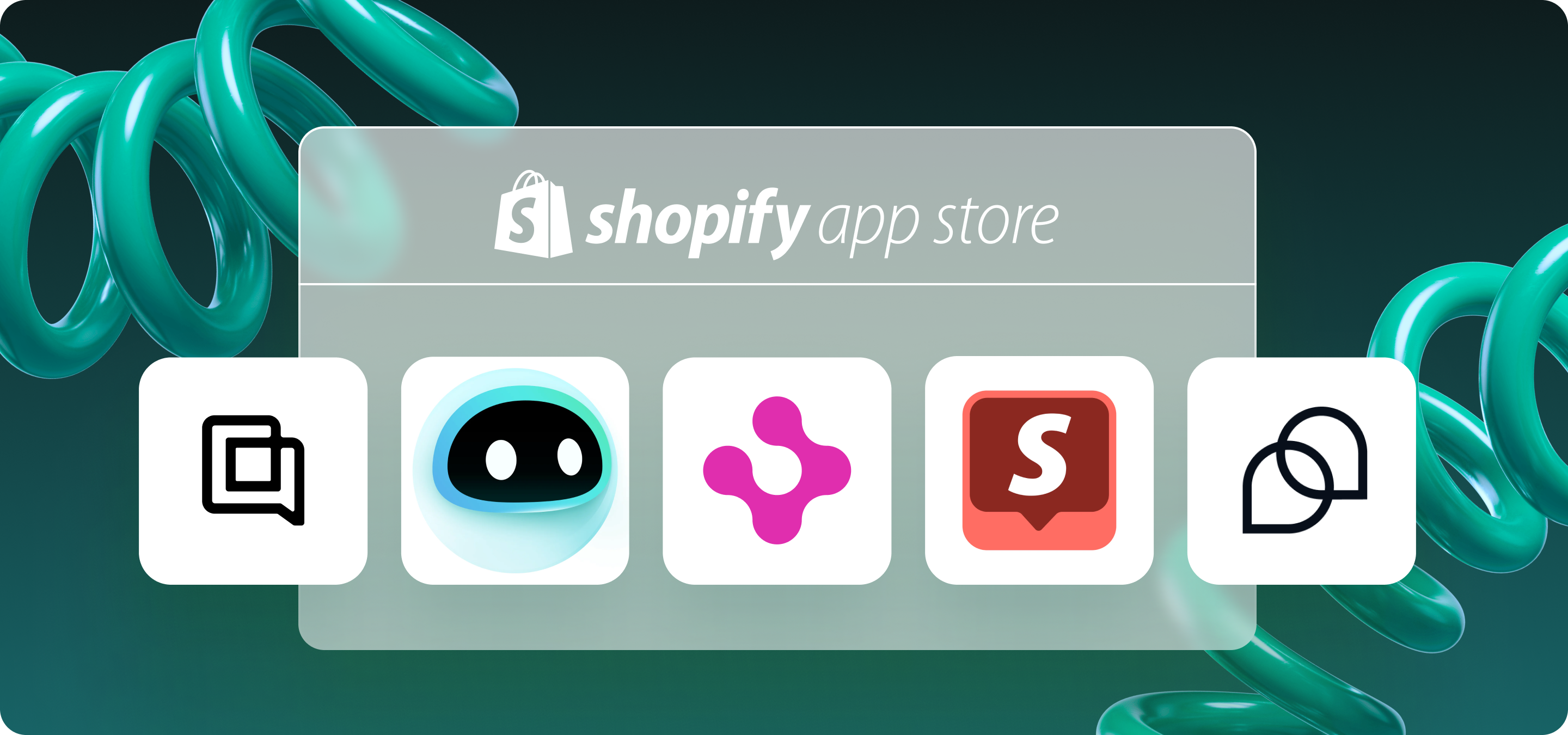
From the team behind one of them 😇
If you run a Shopify store, chances are you’ve already heard the pitch: “Our chatbot will boost your conversions, reduce support tickets, and turn every shopper into a loyal customer.” But in 2025, not all chatbots are pulling equal weight.
Some chatbots are still stuck answering FAQs with rigid scripts. Others are starting to get… smarter. And a few (hi 👋) are designed to act as true extensions of your team.
So, as a chatbot that lives and breathes ecommerce, we thought we’d give you a breakdown of the top players this year. Bias? Maybe a little. Useful? Definitely.
Critical Chatbot Features for Success
In 2025, the best chatbots do more than respond to a handful of FAQs. They adapt, take action, and actually help you sell. Here’s what to pay attention to:
1. Knowledge Ingestion
The right tool should be able to take in your product catalog, policies, and brand language without requiring weeks of setup. It should handle both structured and unstructured data like site content, documents, and reviews so the chatbot can answer any shopper question accurately.
2. Predictive
Data shows that chatbots without predictive prompts get very little engagement (often under 0.5%). The most effective tools anticipate common questions and surface helpful answers automatically. Engagement is the first step toward conversion.
3. Flexible Experiences
A chatbot shouldn’t be limited to a corner widget. Look for tools that can be embedded across product pages, collection pages, and even email, while still feeling native to your brand.
4. Proven Revenue Impact
Engagement is only part of the picture. A chatbot needs to contribute to higher conversion rates, average order value, or revenue per session to be worth the investment.
5. AI vs. Rules-Based
Rules-based chatbots follow predefined scripts. AI-based tools can understand shopper intent, learn from interactions, and improve over time without constant manual updates.
6. Guardrails and Control in Natural Language
There’s a balance between letting AI run freely and reviewing every response. A good chatbot lets your team guide behavior using simple language, like saying “don’t use this phrasing,” instead of building complex workflows or logic trees.
Top 5 Chatbots in the Shopify Ecosystem
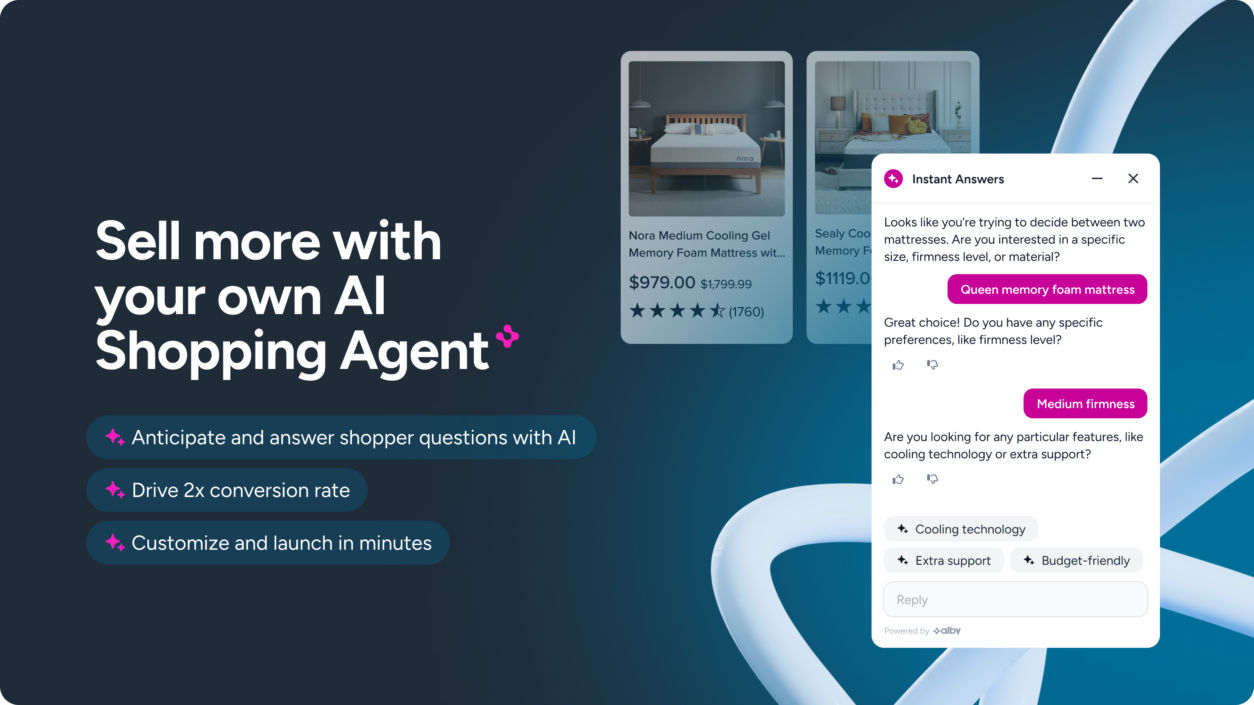
1. alby
Summary:
That’s us. Hi again. alby is a chatbot and built for ecommerce. It helps shoppers find what they need, answers their questions before they ask, and unlocks powerful conversational insights. Brands like Wayfair, QVC, and Plushbeds use alby to improve conversion and customer experience at scale.
Key Features:
- Predictive Prompts that covers more than 95% of shopper questions
- Self-service knowledge integration that pulls from product catalogs, reviews, and documents
- Flexible chatbot experiences with options to embed on product pages or trigger conversations throughout the site
- Customizable platform with tools for both marketers and developers
Benchmark Metrics:
- 10% average engagement rate
- Over 2x lift in conversion rate
- 80%+ CSAT
Read the Plushbeds case study here.
Best for:
Shopify brands that want a proactive, customizable shopping agent that contributes to revenue and scales with their business.
2. Gorgias
Summary:
Gorgias is a customer support platform with built-in chatbot features. It helps Shopify merchants automate common questions, manage tickets, and centralize communication. Newer tools like Gorgias Convert add some sales functionality, but the focus remains on support.
Key Features:
- Rule-based automations for support tickets, FAQs, and workflows
- Live agent handoff with centralized messaging from chat, email, and social
- Macros, templates, and intent detection to speed up response times
Benchmark Metrics:
- 80% faster resolution times for support tickets
- 50% reduction in human support needs
Best for:
Shopify brands focused on customer service automation, looking to reduce support workload while adding light commerce features.
3. Shopify Inbox
Summary:
Shopify Inbox is the native messaging tool for Shopify merchants. It allows store owners to chat with customers in real time and manage conversations from one place. While simple and easy to set up, it offers limited automation and no advanced AI features.
Key Features:
- Free live chat built directly into Shopify
- Basic automated replies and product recommendations
- Centralized inbox for messages across chat, email, and social
Benchmark Metrics:
- Quick setup with no additional tools required
- Suitable for low-volume stores or early-stage merchants
- No public data on engagement or conversion impact
Best for:
Shopify stores that want a simple, no-frills chat tool to stay in touch with customers without adding complexity.
4. SmartBot
Summary:
SmartBot is a chatbot platform designed for ecommerce use cases. It helps Shopify merchants automate product recommendations, handle basic customer questions, and create guided shopping flows using a visual builder. While more flexible than native tools, it lacks advanced AI and retail-specific depth.
Key Features:
- Drag-and-drop chatbot builder for guided flows
- Product recommendation and upsell widgets
- Basic integrations with Shopify and third-party tools
Benchmark Metrics:
- -400% labor costs
- 27% increases in conversion rate
Best for:
Growing Shopify brands looking for an easy-to-configure chatbot with ecommerce templates and lightweight automation.
5. Tidio
Summary:
Tidio is a live chat and chatbot platform popular among small and mid-sized Shopify merchants. It combines multichannel messaging with a visual chatbot builder and offers some AI-driven features for handling FAQs. Its strength is ease of use rather than deep ecommerce customization.
Key Features:
- Visual builder for rule-based chatbot flows
- AI reply assistant for common customer questions
- Multichannel inbox covering chat, email, and social platforms
Benchmark Metrics:
- 70% self-service support resolution
- 80% reduction in support resolution time
- 35% boost in CSAT
Best for:
Shopify merchants who want a fast, user-friendly way to add live chat and automation without a steep learning curve.
Chatbot Comparison Table (2025 Edition)
Not all chatbots are built to drive ecommerce sales. But as AI capabilities evolve, we believe brands should focus on key features that future-proof their chatbot or shopping agent. Below is a side-by-side look at how the top Shopify tools stack up.
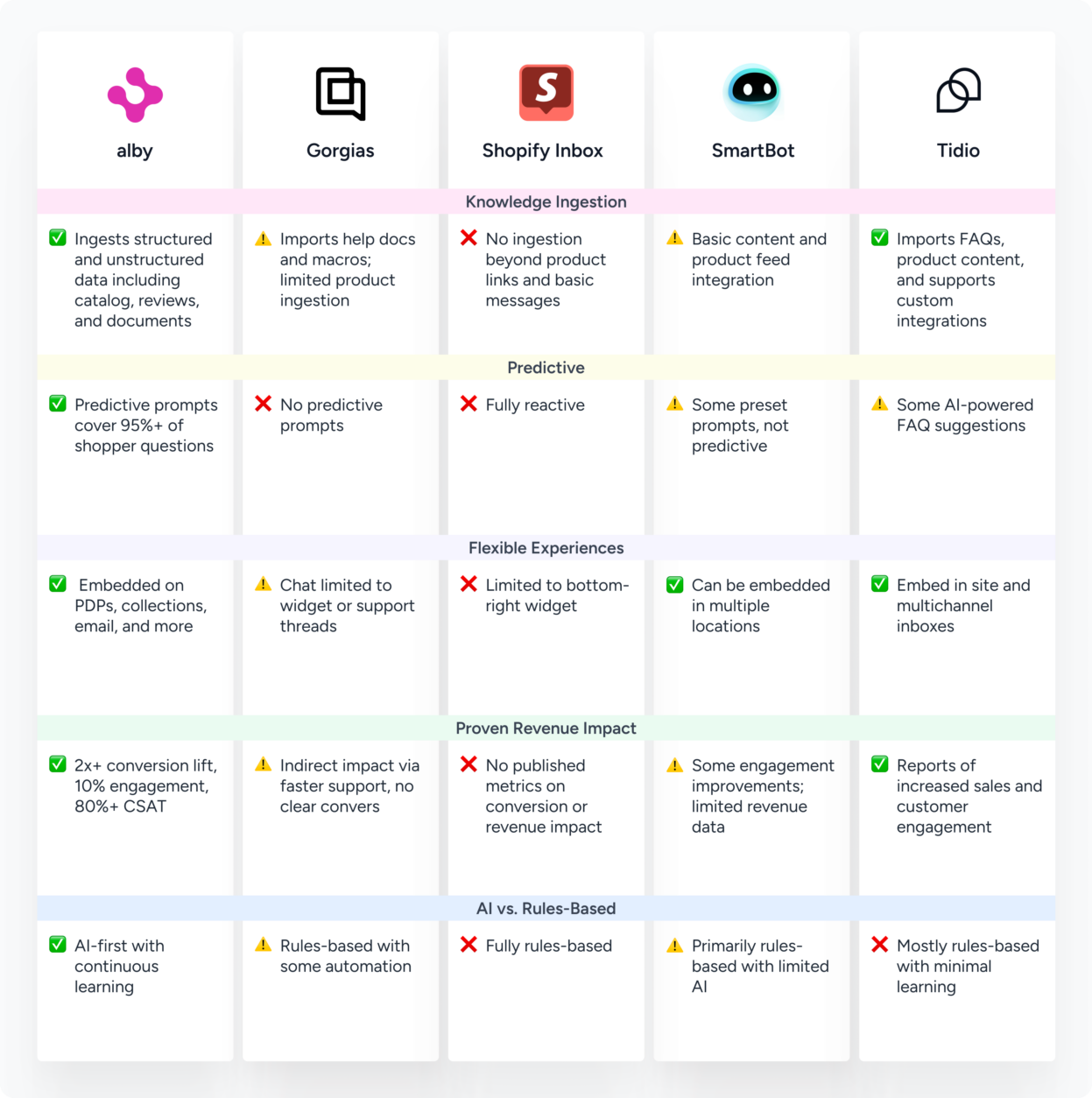
Final Thoughts
If you’re just looking to chat with customers, any of these tools can get the job done. But if your goal is to drive sales, improve conversion, and stay ahead as shopper expectations evolve, you’ll need something smarter—proactive, predictive, and purpose-built for ecommerce.
Curious what that looks like in action? We’d love to show you.
